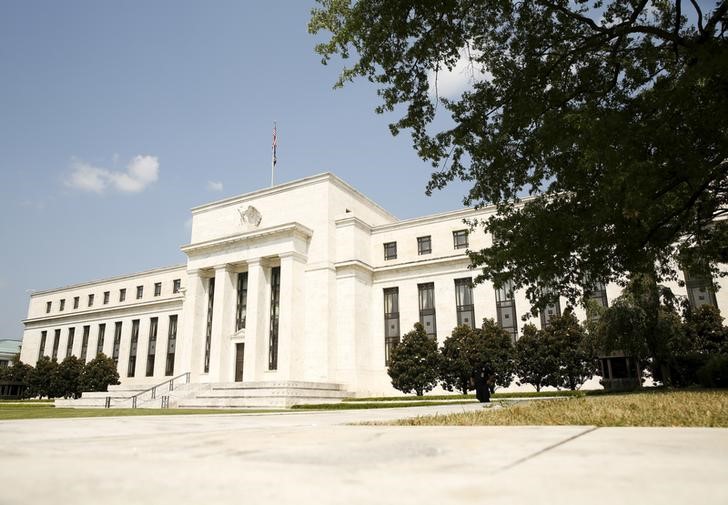By Jason Lange and Howard Schneider
WASHINGTON (Reuters) - The U.S. Federal Reserve thought the economy was close to warranting an interest rate hike in September but policymakers wanted firmer evidence a global economic slowdown was not knocking America off course.
The minutes from the Sept. 16-17 meeting released on Thursday pointed to a deeply cautious Fed even before subsequent economic data showed a sharp slowdown in hiring by U.S. employers.
"Most" policymakers, according to the minutes, thought the Fed's first rate hike in a decade should still come this year and that financial market turmoil had not "materially altered" the outlook for the U.S. economy.
At the same time, U.S. central bankers appeared unsettled and discussed at length the possibility that the China-led slowdown could weigh on America.
"The committee decided that it was prudent to wait for additional information," the Fed said in the minutes, referring to its policy-setting Federal Open Market Committee.
The Fed surprised much of Wall Street by keeping interest rates unchanged at the September meeting, and many analysts expected the minutes to show the decision was a close call.
However, while some central bankers at the September meeting said the U.S. labor market was at full strength and Richmond Fed President Jeffrey Lacker was ready to hike right then and there, worries about a global economic chill clearly extended throughout the central bank.
In discussing the economy's health, "many acknowledged that recent global economic and financial developments may have increased the downside risks to economic activity somewhat," the minutes said.
"It was pretty clear cut that they were in favor of holding off raising rates," said Gus Faucher, an economist at PNC Financial (NYSE:PNC) Services in Pittsburg.
Still, the minutes showed a committee seemingly convinced it was time to move as soon as it was sure the economy was not about to slip off course.
Only a "couple" of policymakers felt the economy is at risk of seeing inflation expectations start drifting lower, an event that might precede a slide into deflation.
"They see everything in pretty good condition, but they figured no harm in waiting," said Brad McMillan, chief investment officer for Commonwealth Financial in Waltham, Massachusetts.
Even last month's slowdown in job creation should be viewed in the context of an economy that is at or near full employment, San Francisco Federal Reserve Bank president John Williams said on Thursday, holding to a position he has laid out in recent days.
U.S. employers slammed the brakes on hiring in August and September, hardening views among investors that the first rate hike won't come until March.
But Williams cited the economy's low, 5.1 percent rate of unemployment and evidence of fast-rising real estate prices in his West Coast district as signs it may be risky to wait much longer to raise rates.
"Given the progress we've made and continue to make on our goals, I view the next appropriate step as gradually raising interest rates, most likely starting sometime later this year," Williams said.
Yields on U.S. government debt rose to a one-week high following the publication of the minutes, while U.S. stocks added to gains.
